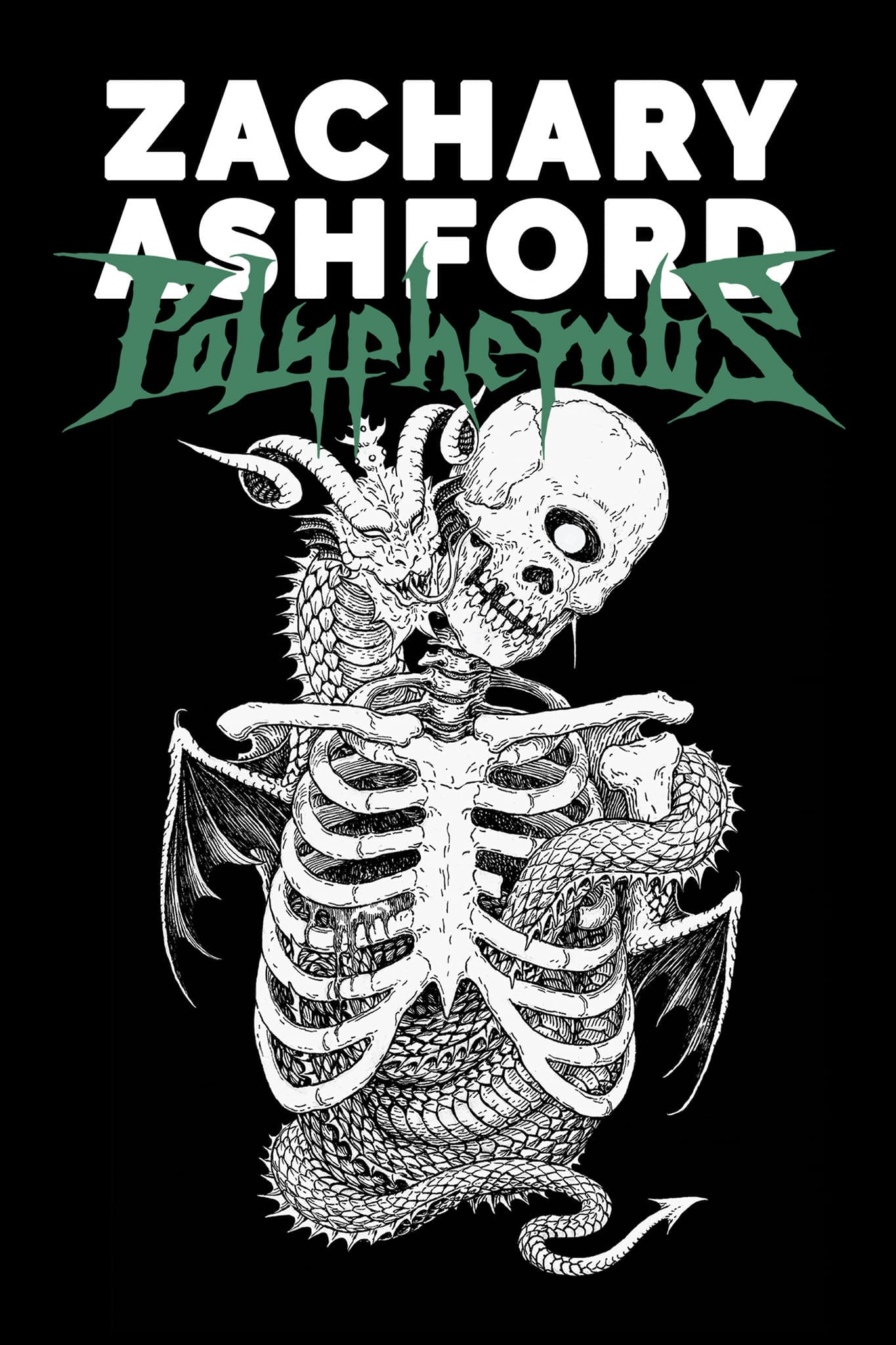
Synopsis
When lead vocalist of Polyphemus Stephen Oaks’s near-fatal on-stage overdose leaves them under pressure from their label, the band’s remaining members must find a new vocalist, pick up the pieces and forge on without him.
Unfortunately, he’s fresh from rehab and desperate to reunite with his old band, In fact he’s so desperate that he’ll bargain with dark forces and sacrifice everything – and anyone!
After the final encore is played and the house lights come down, there is no telling who will remain or who they’ll be in allegiance to. For Polyphemus, obsession costs far more than mere murder.
Review
Once, back in school, a professor was describing Flannery O’Connor’s strategy for dealing with characters. Her description went something like this: O’Connor introduces a cast of characters and says, ‘Yes, they’re petty, and stupid, and cruel, but look… they’re suffering.’ In O’Connor’s very Catholic worldview, and in her fiction, this suffering was enough.
I’ve thought about this rather offhand observation from thirty years ago many times, especially when the online discourse inevitably rolls around again to discussions of “likability” of characters, and I thought about it all the way through Zachary Ashford’s novel, Polyphemus.
In general, I reject any concept of likability in fiction. The only rule is that the characters be interesting, that there’s something at stake.
By this measure, I should have loved Polyphemus. The book gives us a good cast of characters set in a unique and highly interesting world of the heavy metal music scene. The details of that world are so rich: the politics of the industry, the substance abuse and addiction, the revolving band members, and the attempts to reconcile what might have been with more adult expectations. This is the stuff of a novel. Add in an evil life coach and a demonic spirit offering a Faustian bargain, and you can’t hardly go wrong.
And yet.
In the end, I had to admit that it was the characters that spoiled it for me. Almost to a one, they were foul, sociopathic boy-children who seemed almost completely unfazed by the death of their friends, except for how it might affect their career chances, and later, they respond to actually taking lives with similar nonchalance. The women are either nagging harpies or nurturing angels. And the only guy who seems to have some scruples about anything is one of the first to die.
But I’m not abandoning my likability stance. I just don’t think there was enough at stake here, or at least enough that was made real enough for me to care. The fact that these characters are obsessed with the band’s success does not naturally translate to my own elevated level of concern, and in fact, these guys going out on tour sounds like a terrible idea for everyone involved. Ashford makes attempts to create more human and down to earth concerns to pull the reader in (family troubles, a burgeoning romance) but they are mere sketches, and the characters march through these conflicts with either histrionic actions or over-earnest dialogue (characters often fall to their knees or deliver speeches).
There is plenty to admire here, and I wanted to enjoy Polyphemus more than I did, but in the end, even the character’s suffering seemed unimportant, because for all their faults and foibles, they had not yet been made human enough.








Leave a Reply